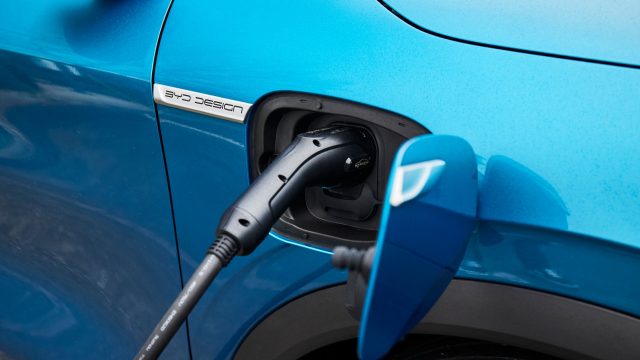Tariffs proposed by the EU on imports of Chinese battery-electric vehicles may slow their sales but that depends on how much of the cost manufacturers absorb.
That’s according to Owen Edwards, head of downstream automotive at professional services business Grant Thornton, writing in Cox Automotive’s latest Insight Quarterly.
The tariffs – ranging from 19% to 46.3% – are a counter-strike to the Chinese government’s support for manufacturers, which the EU says is giving them an unfair advantage.
The UK government is yet to state its stance on the tariffs, which has caused uncertainty about how pricing and consumer demand for Chinese BEVs will be affected, said Edwards.
He added that the UK, as the second-largest new car market in Europe, is set to be a significant battleground for the brands as they chase market penetration here.
‘Historically, Europe presented an attractive opportunity for Chinese brands due to its large new vehicle market and lower import tariffs,’ he writes.
‘However, the newly proposed tariffs by the EU, aimed specifically at Chinese BEVs, threaten to disrupt these expansion plans.
‘These measures are a response to the significant government support that Chinese BEV manufacturers receive, which the EU believes could distort competition and impact the local automotive industry.’
Philip Nothard, Cox Automotive’s insight director, said: ‘The implications for the UK market are yet to be fully realised, as the UK government has not yet clarified its stance on import tariffs for Chinese BEVs.
‘However, the impact on consumer pricing and brand acceptance could be substantial, as identified by Owen and the Grant Thornton team in our latest Insight Quarterly.’
One major area of concern is that the new tariffs only apply to Chinese BEV imports, whereas traditional ICE vehicles remain at the lower 10% tariff.
Edwards says: ‘Some Chinese brands, like BYD, have indicated a willingness to absorb the increased costs, while others may pass them on to consumers, potentially slowing their growth in the region.’
He adds: ‘In the short term, we may see a slowdown in sales of some Chinese BEVs due to the new import tariffs.
‘However, the impact will likely be less severe for those brands that can absorb the costs.
‘Notably, Chinese OEMs like BYD are already planning to manufacture in the EU, with battery plants in Hungary and vehicle plants in Turkey on the horizon.
‘Chery also has potential manufacturing support in Spain. By producing locally, these companies could bypass some tariffs, reducing costs and allowing them to compete more effectively in the European market.’
Despite these challenges, Chinese brands remain determined to capture market share in Europe.
However, Cox Automotive’s Nothard comments: ‘Factors such as brand acceptance, dealer networks, parts supply and residual values will play a critical role in their success.
‘We are interested to see how much market share the Chinese brands are able to take, and how quickly.’
Nothard also told Car Dealer: ‘Recent insights indicate a shift in market sentiment, with demand stabilising in various sectors despite earlier fluctuations.
‘This shift is largely driven by adaptive strategies and a growing recognition of long-term trends rather than short-term market corrections.
‘As we look ahead, the outlook suggests that while immediate challenges remain, particularly concerning inflation and supply chain disruptions, there is cautious optimism.
‘This optimism is based on the anticipation of gradual economic recovery and adjustments in consumer behaviour that align more closely with the evolving economic landscape.’


































